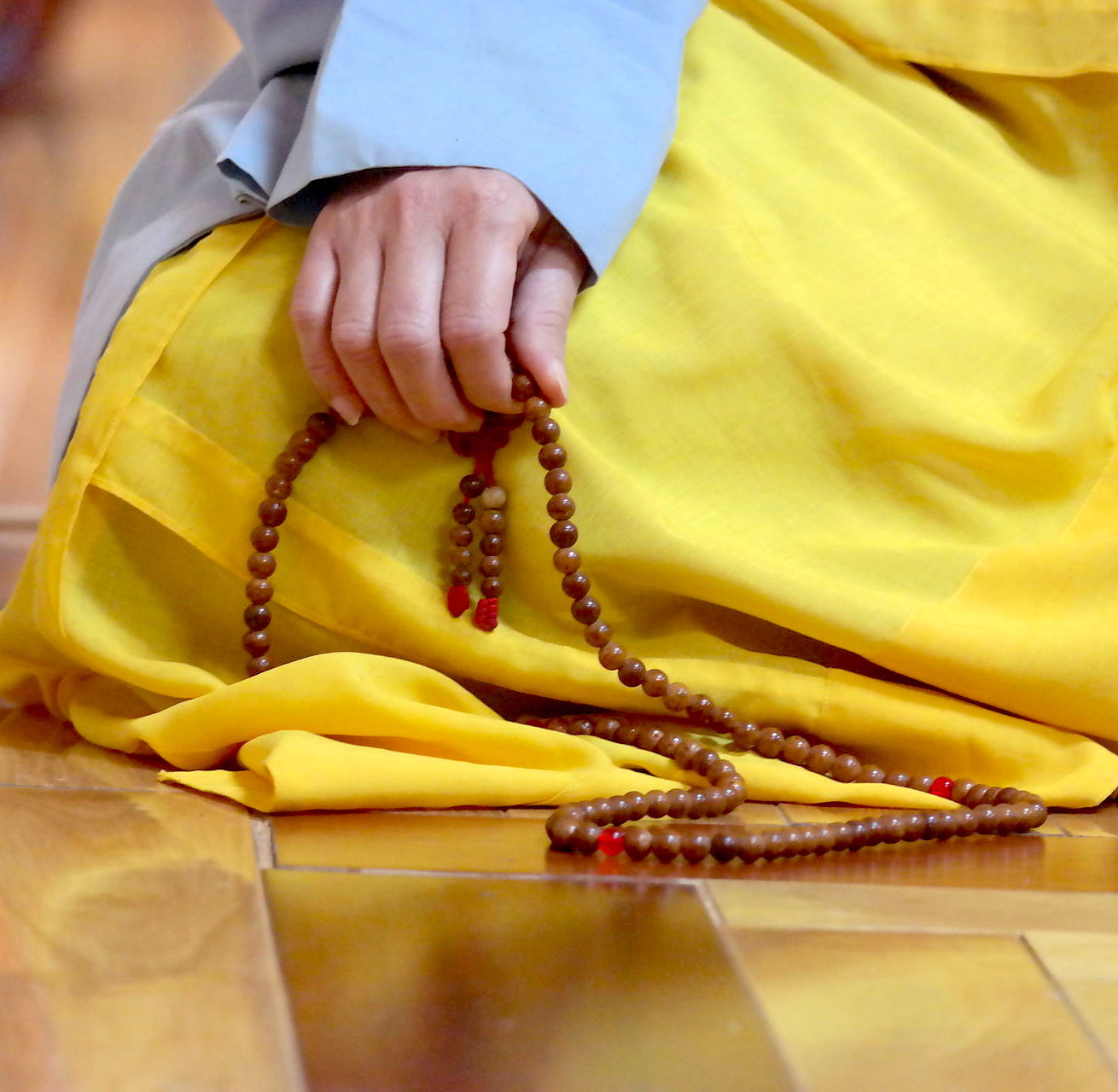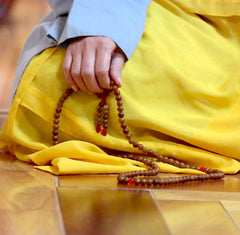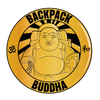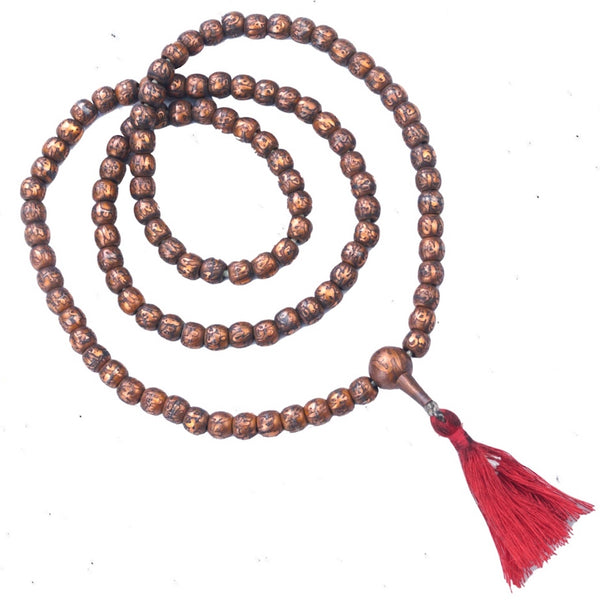
A Comprehensive Guide To Meditating With A Buddhist Mala
 Mala Beads are ancient. Yogis and Buddhist Monks have been reciting prayers or mantras on their 108 Mala beads for millennium. In Buddhism, the Mala is used to help achieve the 8th step of Buddha's 8 Fold Path, "Right Concentration." It is believed that only through the right concentration that we can understand and thereby liberate ourselves from suffering.
Mala Beads are ancient. Yogis and Buddhist Monks have been reciting prayers or mantras on their 108 Mala beads for millennium. In Buddhism, the Mala is used to help achieve the 8th step of Buddha's 8 Fold Path, "Right Concentration." It is believed that only through the right concentration that we can understand and thereby liberate ourselves from suffering.
If you've heard about Mala meditation, but have know idea where to start, you're in the right place. In the following guide you'll learn everything you need to know about Mala beads, how to choose a mala that's right for you, and how to meditate with them.
Why Does The Buddhist Mala Have 108 Beads
Although the reason for 108 beads is contested, it is certainly a spiritually significant number, and one found throughout Hindu and Buddhist traditions. In Hinduism, there are 108 Upanishads, ancient texts from spiritual sages. There are also 108 revered Hindu goddess. In Buddhism, there are 108 earthly desires that must be overcome to achieve enlightenment. Finally, some people have found the number 108 significant in astrology where the multiplication of 12 houses and 9 planets equals 108. Whatever the case, there is no doubt that 108 beads holds great significance across Hindu-Buddhist religions.
How To Choose A Buddhist Mala
When choosing a Buddhist Mala, it is important to consider a few different things.
- Bead Size: Whichever Mala you choose, you're going to want to make sure that the beads feel comfortable and even calming between your fingers. A good size for those with smaller fingers is 6 or 7mm round beads. For people with larger fingers, 8 to 10mm is recommended. Of course, this doesn't means 12 or even 14 mm bhodi seeds are out of the question, as many monks often count on these as well.
- Bead Texture: Some people prefer the energy transference of a metal Mala, the texture of a conch shell mala, or even the properties of crystal mala beads. Others find wooden mala beads the most satisfying to roll. And there are those that prefer prickly rudraksha seed Mala beads.
- Mala Weight: The Buddhist Mala is often adjustable and worn around the wrist. If you prefer something lighter, wood is your best option. For a more substantial feel, copper, brass, conch shell or crystals are preferred.
Overall, it's a good idea to test each type of Mala before committing. Discover which one speaks to you the most to and your unique energy. For a collection of wearable meditation Mala beads, you’ll find our collection here. We always offer returns, and strive to treat every customer the way we would want to be treated.
Blessing Your Buddhist Mala
In countries like Nepal with strong Buddhist traditions, it is common to have a new Mala blessed by monastic monks. The senior monk purifies and infuses the Mala with positive energy through the ancient mantras such as “Om Ranchi Ramni Tawa Taya Hum.” For more information about blessed Malas, please view our Blessed Mala Collection.
How To Use A Buddhist Mala
Although Buddhist Mala beads are used by monks during meditation, they can also be used throughout one's day. Countless Nepali often wear their Mala loosely on their left wrist. When they are waiting on line, they count their beads. When they feel anxious or stressed, they roll the beads to induce calm.
However, when it comes to meditation, there is a specific method by which to use your Mala.
- First, hold your Mala in the left hand (the receiving hand) between the index or middle finger and thumb.
- Grasp the Mala gently but with intention.
- Take a few natural breaths and begin.
- Start counting with the first bead after the guru bead.
- Count one bead for each completed recitation, affirmation or mantra.
- Continue this for 108 beads.
The Best Mantras For Mala Meditation
Traditional Buddhist & Hindu Mala Meditation Mantras:
- OM MANI PADME HUM – the six syllables, Om Ma Ni Pad Me Hum (ohm) (mah) (nee) (pahd) (may) (hum) This mantra is considered to be the sound of truth; truth in purity, truth in the path, and truth in compassion. It is literally translated to the jewel in the lotus flower towards enlightenment. In other words, it is believed that by reciting this mantra one becomes closer to attaining enlightenment. It is an ancient mantra surrounding the bodhisattva of compassion or Avalokiteshvara. Since the Dalai Lama is considered to be an incarnation of Avalokiteshvara, this mantra is his. It is also the most widely used of all Tibetan Buddhist Mantras.
- OM AMI DEWA HRIH - Om Ami Dewa (ohm) (am e) (De Wa) Hrih (Shri) This mantra is believed to protect one from dangers and obstacles, and help you to overcome hindrances to your success.
- The 108 Names Of Buddha - In many Buddhist temples and monasteries, the names of Buddha are often recited while counting Mala beads. Om budhaaya namah, Om budhaarcitaaya namah, Om saumyaaya namah, Om saumyacittaaya namah, Om shubha-pradaaya namah (Buddha has a lot of names!)
- OM NAMAH SHIVAYA - Om Namah Shivaya (ohm) (Na ma) (Shi Va Ya) is one of the most popular Hindu mantras and the most important mantra in Shaivism (Worship to the God Shiva). It is often translated to mean “I honor The God Within me,” which is a pillar of Hindu dogma.
Unique Mantras For Modern Life
The ancient mantras hold great meaning and power, but we tend to gravitate towards mantras in English that are more relatable. Remember, if you’re making your own mantras, always be sure to make them in the present tense, as opposed to the future. We find that present tense mantras are often more powerful and immediate. Here are some of our favorites that we like to recite:
- I believe in the power of cause and effect
- I create whatever reality I desire I am enough
- I am the best version of myself
- I love the divine within everyone I meet
- As long as I have love I have no need to fear
- In order to love myself I practice loving others
- I trust in the god within me
- I am grateful for all that I have and all the people in my life
- I never give up
The Best Way To Meditate With A Mala
One of the greatest aspects of Hinduism and Buddhism is that they are religions open to great interpretation. Although Buddhism and Hinduism offer guidelines and paths towards enlightenment, in the end, it is up to you to strive towards your own enlightenment.
As the Dalai Lama once stated, “This is my simple religion. There is no need for temples; no need for complicated philosophy. Our own brain, our own heart is our temple; the philosophy is kindness.” In other words, it all boils down to kindness, compassion and the cessation of suffering, and you can decide exactly how you want to use your unique Mala towards this end.
You can create a custom mantra specific to your struggle. You can simply count your breaths as you count the beads. You can also just wear them, and in doing so remember to become more mindful, grateful and compassionate each time you see them.
However, as with any endeavor, especially one as challenging as enlightenment, it is important to remain disciplined and dedicated. If you start reciting your own mantras, make it a habit. Recite once when you wake up and once before you go to sleep. Recite when you feel stressed or restless. Recite whenever you feel the need. From all of us at backpack Buddha, we wish you the greatest peace, love and contentment on your path.



Comments
AndrewTip
песня про
May 15, 2021
Walterwed
песнь песней скачать
May 15, 2021
AnthonyRic
дан дан дан песня
May 15, 2021
RichardGap
скачать музыку бесплатно без
May 15, 2021
RichardGap
https://ssss.ru
May 14, 2021
eropoulse
Good afternoon.
СТРОИТЕЛЬСТВО РЕМОНТ И ОТДЕЛКА
https://a-project.com.ua/19-jelektromontazhnye-raboty.html
May 12, 2021
MichaelGusty
]
May 12, 2021
TimothyPurSe
[url=https://uspehspecteh.ru/]Аренда спецтехники объявления Успехспецтех вся Россия[/url]
May 11, 2021
WillieDed
такси телефоны [url=https://xn—80aqf2ac.taxi/]https://xn—80aqf2ac.taxi/[/url]
May 10, 2021
JasonRaw
[url=https://rorri.ru/catalog/ryukzaki/]Купить рюкзаки Tatonka[/url]
May 08, 2021
Leave a comment